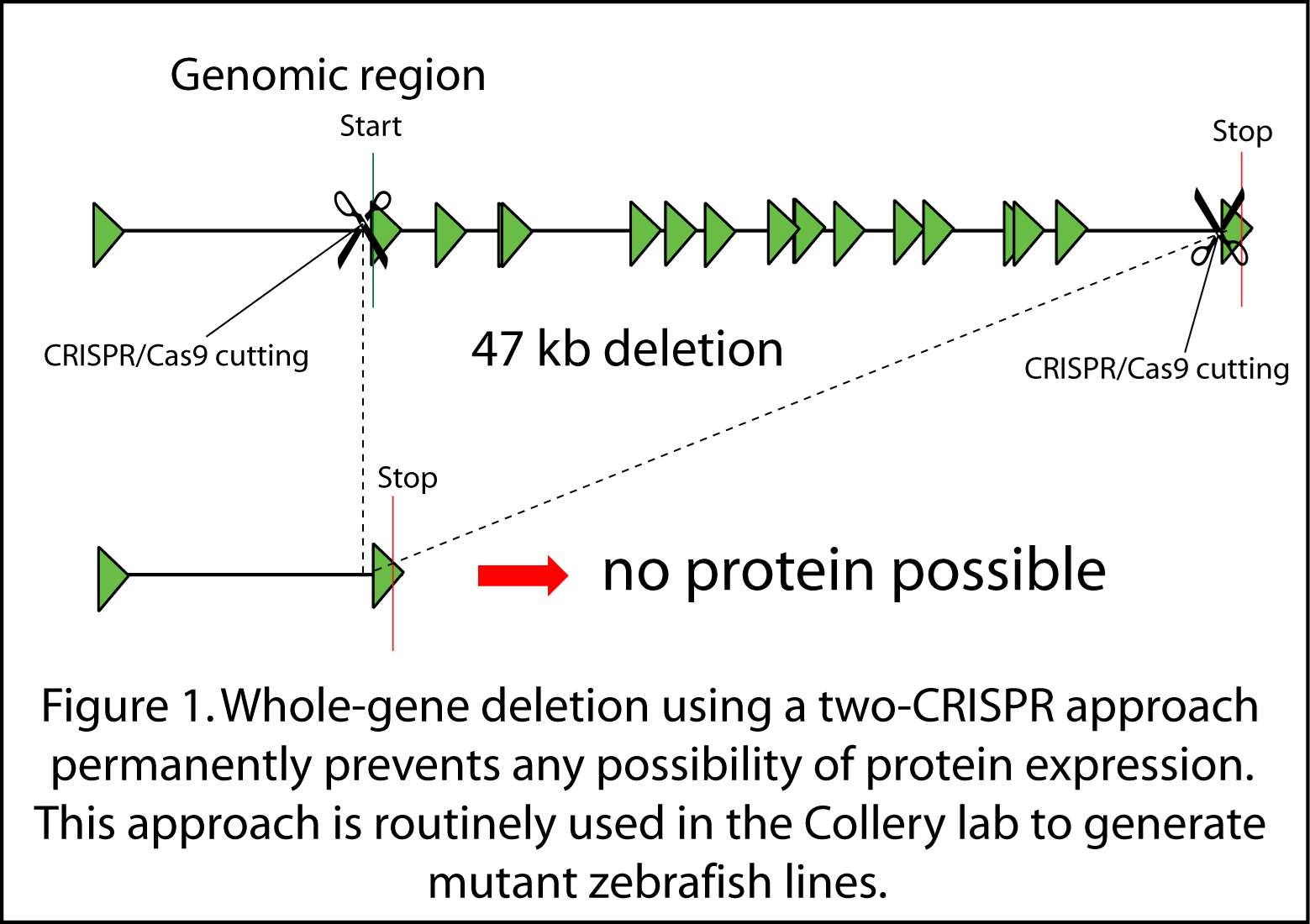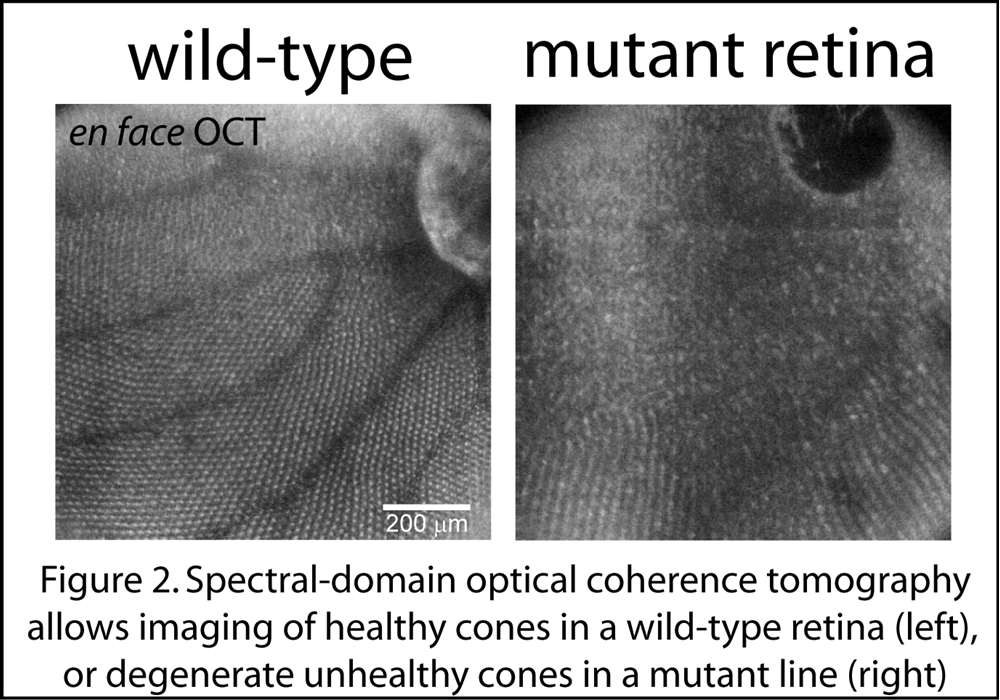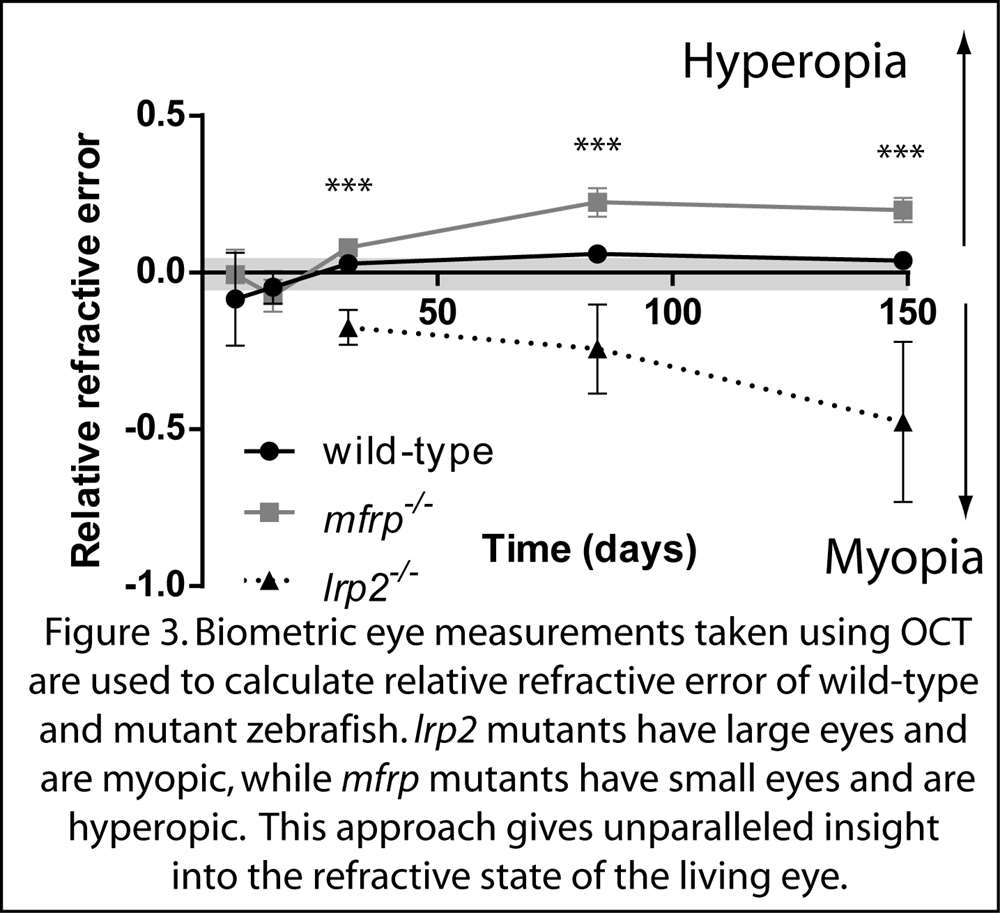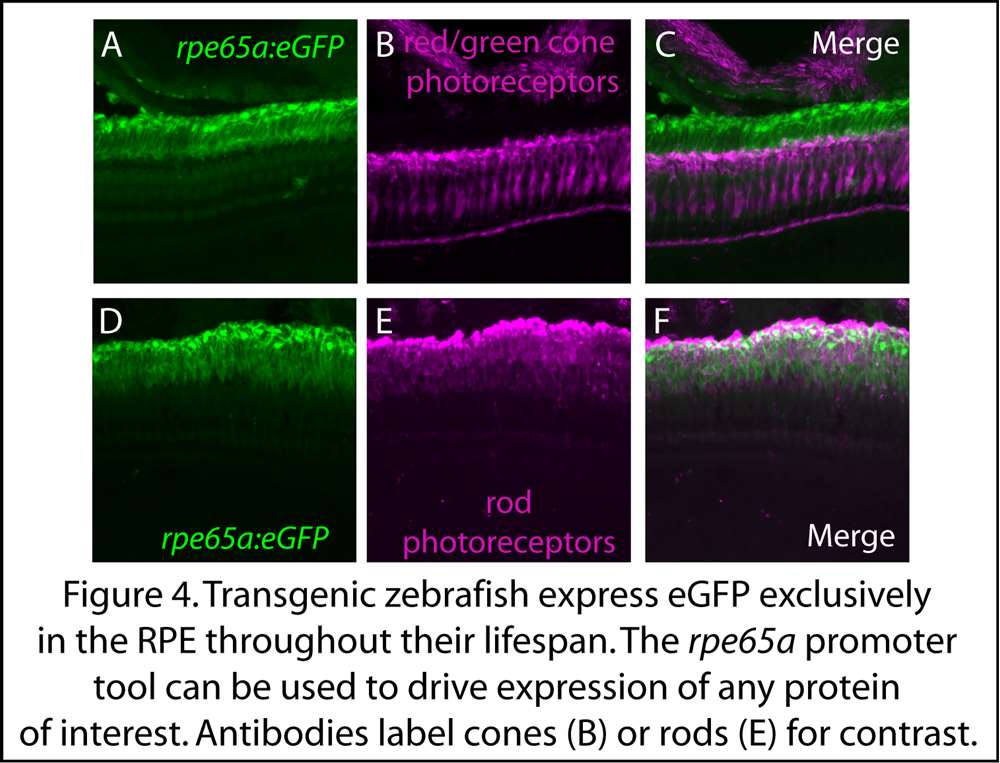
Ross Collery, PhD
Associate Professor of Ophthalmology & Visual Sciences; Associate Professor of Cell Biology, Neurobiology and Anatomy
Locations
- Medical College of Wisconsin Eye Institute
- 925 N. 87 St. Room 827
Milwaukee, WI 53226
Contact Information
Education
MSc, Molecular Genetics, Trinity College, Dublin, Ireland
BA (Mod), Genetics, Trinity College, Dublin, Ireland
Biography
Dr. Collery received his Bachelor of Science (specializing in Genetics) from Trinity College Dublin in 2000 and received his master’s degree in genetics from the same institution in 2003.
Dr. Collery then went on to obtain his PhD in Genetics from University College Dublin in 2008, where his research with Dr. Breandán Kennedy focused on using zebrafish to study both phototransduction in the eye, as well as the visual cycle. During his graduate career, he helped to characterize components of the cone and rod visual cycles, as well as applying emerging transgenic methods to express human proteins in zebrafish photoreceptors.
During his postdoctoral career, he worked with Dr. Brian Link at MCW studying the effects of BMP signaling and LRP2 function on eye size and refractive error.
Today, Dr. Collery continues to study pathways in the eye that contribute to vision, refractive error and retinoid trafficking.
Dr. Collery became a faculty member at the Medical College of Wisconsin Eye Institute in 2016.
Research Interests
The Collery lab studies studies refractive error and retinal degeneration in the eye, and how they influence one another, often having a common genetic cause.
Refractive error is common in inherited retinal degenerations, and conversely, refractive error can lead to retinal damage and degeneration.
We are especially interested in retinoids, compounds derived from vitamin A, that control many functions of the eye. Mutations in retinoid transport proteins have been shown to cause refractive error and photoreceptor loss. For example, mutations in human STRA6, a retinoid receptor found on the retinal pigment epithelial layer, cause Matthew-Wood syndrome, characterized by microphthalmia and coloboma.
To better understand how retinoids influence the development and health of the eye, we use a host of cutting-edge techniques, including:
- CRISPR/Cas9 genomic editing (Figure 1)
- Live imaging of the eye and retina using optical coherence tomography (OCT) (Figure 2)
- Refractive error measurement (Figure 3)
- Transgenic animal models (Figure 4; Movie 1)
- Fluorescent protein imaging (Figure 4)
- RNAseq transcriptomic profiling
Publications
-
Preventing Age-Related Nuclear Cataract Development - Is Cholesterol the Key?
(Subczynski WK, Mainali L, Collery RF, Pasenkiewicz-Gierula M, Widomska J.) Invest Ophthalmol Vis Sci. 2026 Jan 05;67(1):34 PMID: 41537757 PMCID: PMC12814978 SCOPUS ID: 2-s2.0-105027529761 01/16/2026
-
(Fehilly JD, McCann T, Ruddin G, Kaylor JJ, Grenville H, Ward R, Wynne K, Sánchez AG, Strachan E, Travis GH, Collery RF, Kennedy BN.) FASEB J. 2025 Jun 30;39(12):e70754 PMID: 40552921 PMCID: PMC12186719 SCOPUS ID: 2-s2.0-105009298865 06/24/2025
-
(Subczynski WK, Collery RF, Widomska J.) Exp Eye Res. 2025 May;254:110320 PMID: 40043934 SCOPUS ID: 2-s2.0-85219233510 03/06/2025
-
Protocol to perform ex vivo electroretinography on adult zebrafish.
(Simpson SL, Collery RF.) STAR Protoc. 2025 Mar 21;6(1):103565 PMID: 39823232 PMCID: PMC11786734 SCOPUS ID: 2-s2.0-85214862331 01/17/2025
-
The USH3A causative gene clarin1 functions in Müller glia to maintain retinal photoreceptors.
(Nonarath HJT, Simpson SL, Slobodianuk TL, Tran H, Collery RF, Dinculescu A, Link BA.) PLoS Genet. 2025 Mar;21(3):e1011205 PMID: 40067805 PMCID: PMC11925288 SCOPUS ID: 2-s2.0-86000624288 03/12/2025
-
Emc1 is essential for vision and zebrafish photoreceptor outer segment morphogenesis.
(McCann T, Sundaramurthi H, Walsh C, Virdi S, Alvarez Y, Sapetto-Rebow B, Collery RF, Carter SP, Moran A, Mulholland R, O'Connor JJ, Taylor MR, Rauch N, Starostik MR, English MA, Swaroop A, Geisler R, Reynolds AL, Kennedy BN.) FASEB J. 2024 Oct 15;38(19):e70086 PMID: 39360639 SCOPUS ID: 2-s2.0-85205528183 10/03/2024
-
(Eisa-Beygi S, Hu MM, Kumar SN, Jeffery BE, Collery RF, Vo NJ, Lamichanne BS, Yost HJ, Veldman MB, Link BA.) Arterioscler Thromb Vasc Biol. 2023 Jul;43(7):e231-e237 PMID: 37128914 PMCID: PMC10330147 SCOPUS ID: 2-s2.0-85163499929 05/02/2023
-
(Young JB, Al-Kirwi KY, Wynne N, Buchberger AR, Skumatz CMB, Collery RF, Kassem IS.) Exp Eye Res. 2022 Dec;225:109219 PMID: 35985530 PMCID: PMC9910826 SCOPUS ID: 2-s2.0-85140298482 08/20/2022
-
Regulation of the rhythmic diversity of daily photoreceptor outer segment phagocytosis in vivo.
(Moran AL, Fehilly JD, Floss Jones D, Collery R, Kennedy BN.) FASEB J. 2022 Oct;36(10):e22556 PMID: 36165194 PMCID: PMC9828801 SCOPUS ID: 2-s2.0-85138598327 09/28/2022
-
Ablation of mpeg+ Macrophages Exacerbates mfrp-Related Hyperopia.
(Brandt ZJ, Collery RF, Besharse JC, Link BA.) Invest Ophthalmol Vis Sci. 2021 Dec 01;62(15):13 PMID: 34913948 PMCID: PMC8684298 SCOPUS ID: 2-s2.0-85122380090 12/17/2021
-
Optical Coherence Tomography Angiography in the Thirteen-Lined Ground Squirrel.
(Salmon AE, Chen RC, Atry F, Gaffney M, Merriman DK, Gil DA, Skala MC, Collery R, Allen KP, Buckland E, Pashaie R, Carroll J.) Transl Vis Sci Technol. 2021 Jul 01;10(8):5 PMID: 34232271 PMCID: PMC8267221 SCOPUS ID: 2-s2.0-85111034709 07/08/2021
Lab Images





